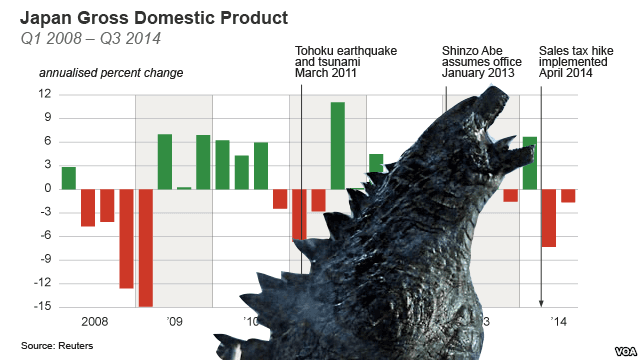There is a remarkable disconnect between the Abe Administration and the Japanese public when it comes to how they look at nuclear energy. A Japanese opinion poll in March on nuclear restarts indicated that 59% of the public oppose restarts of any nuclear capacity, whereas only 28% support restarts. This stark opposition to restarting nuclear reactors is counter to what the Abe Administration is trying to accomplish. Abe and his allies are keen to restart as many reactors as possible.
The public has a reason to be weary of the nuclear reactors: only 17 of the 48 reactors meet the new standards set by the Nuclear Regulatory Agency (NRA). Many of the reactors are written off due to their age, proximity to a seismic fault, and other factors that render them incapable of satisfying the new safety standards. And of the 17 reactors, all but 8 have remarkably strong local opposition. If the governments were able to restart those 8 reactors, then it would only account for roughly 6% of Japan’s energy requirements
Following the Fukushima disaster on March 11, 2011, the federal government and local municipalities began to invest more and more of its resources in policies that promote renewable energy projects. Fukushima Prefecture committed to 100% renewable energy by 2040, which encouraged other prefectures and cities, including Tokyo, Kyoto, and Osaka, to adopt ambitious targets.
Japan’s “feed in tariff” policy support for diffusing renewables, effective from 2012, saw over four nuclear reactors worth of new renewable capacity developed in the initial year. And domestic shipments of solar cells and modules during 2013 tripled.
The Pew Research April 3, 2014 publication of “Who’s Winning the Clear Energy Race? 2013“ noted that Japan ”experienced the fastest investment growth in the world, increasing 80%, to almost $29 billion.”
But despite the speed by which investment in renewable energy is growing, it is not enough to offset the enormous gap left by the 48 reactors going offline. Due to the loss of nuclear power generation, an additional 3.6 trillion yen was spent to increase purchases of alternative power generation fuels such as liquefied natural gas (LNG) and oil. So with a Japanese population of roughly 120 million, an average four-person household is paying an additional $1,200 per year for fuel imports. Such a large import is a burden on consumers and will damage Japan’s economic viability on the world stage.
It is clearly impossible to restart all nuclear reactors, but there are steps that the Abe Administration can take to help recover the public’s trust in nuclear energy. In order to begin recovering trust, the government must establish a strong, independent, and capable regulatory authority. Appropriate regulation and oversight of nuclear power plant operations are needed to show the public that the operations of plants are controlled sufficiently.
Furthermore, the government must change the perception of nuclear energy having “zero risk”. In the past, the government and power companies have tried to ensure that no risk of an accident at plants exists in order to obtain consent from local communities to install nuclear power. The myth of complete and absolute safety gradually came to be perceived as a reality. Perpetuation of this myth led to the institutionalization of static and rigid nuclear safety measures, that don’t even meet those of the NRA. Just like all forms of energy, the public must understand that nuclear energy can be safe, but will never be risk free – just like coal, natural gas, and oil generated electricity.
The Abe Administration is trying all they can to restart the nuclear reactors, but they aren’t doing enough to rebuild public trust in nuclear energy. It is inspiring to see local governments promote renewable energy to replace the lack of nuclear energy, but it won’t be enough. The public and the government must meet in the middle, and allow some reactors to restart after new and improved safety regulations have been implemented. If some of the reactors aren’t restarted soon, then the Japanese economy will be dragged down by the high cost of LNG and other fossil fuels.


